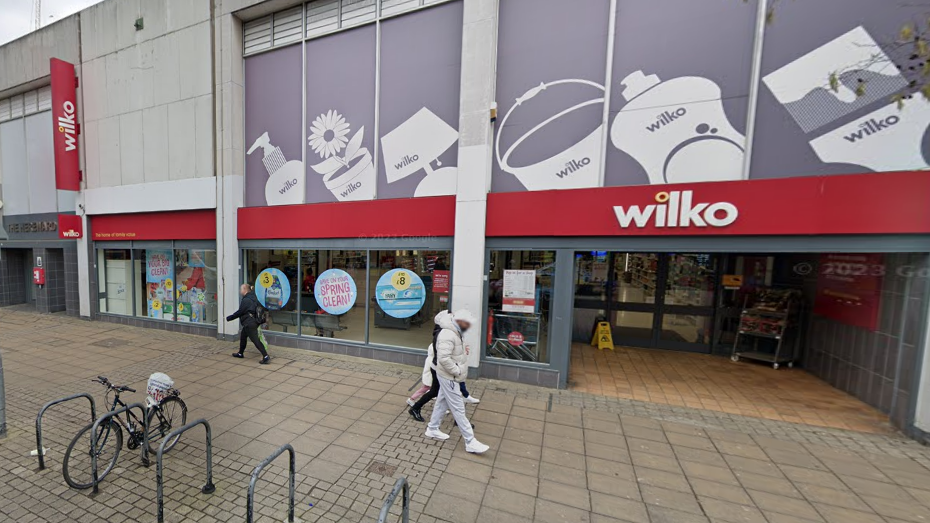High streets 'flooded' with gambling machines
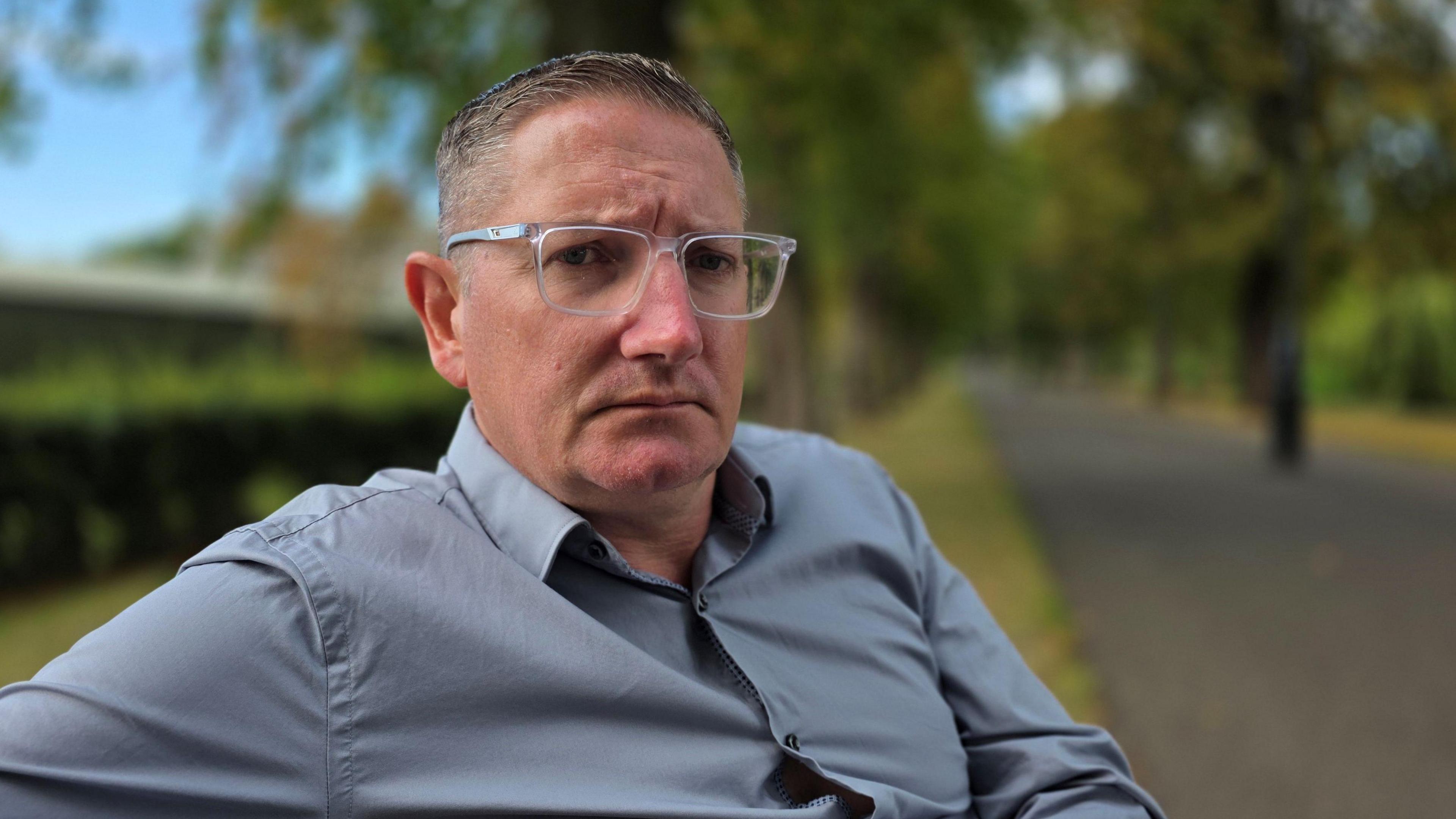
Andy May said he hoped the government would make changes to current licensing rules
- Published
A recovering gambling addict said he feared high streets were being "flooded" with slot-machine arcades, known as adult gaming centres.
Andy May, from Dersingham, Norfolk, who was jailed for stealing £1.3m from his employer to fund an online gambling addiction, said he was concerned about the increase in the arcades, some of which operate 24 hours a day.
"It's like an unstoppable flood at the moment," said Mr May, who now works as a recovery coach for other problem gamblers.
British Amusement Catering Trades Association (Bacta), which represents owners of gaming centres, said they were "among the safest places to gamble".
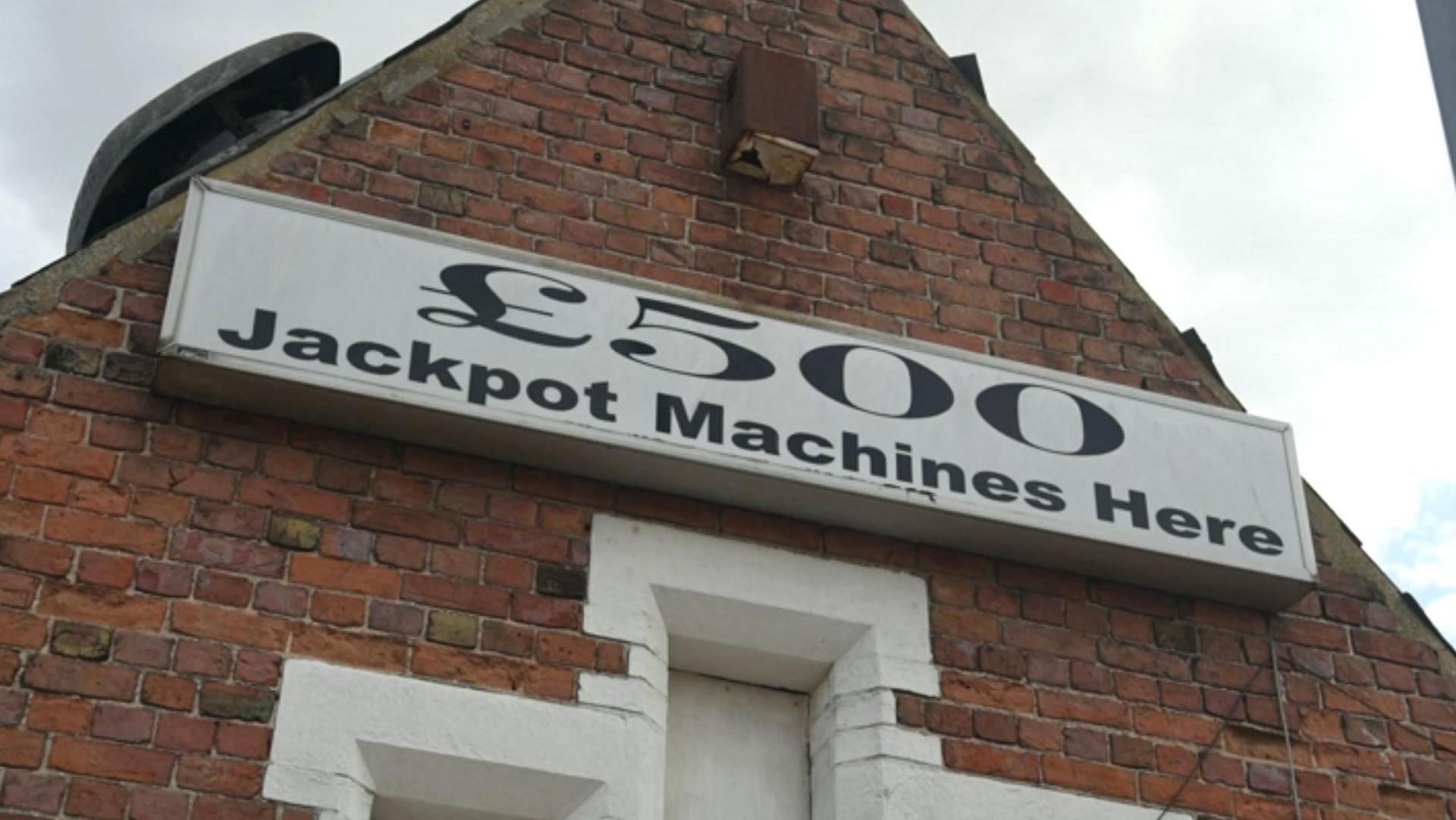
Machines offer jackpots of up to £500 from a maximum stake of £2 a spin
There are nearly 1,500 adult-only gaming centres in Britain, where players can spend up to £2 per spin to win jackpots of up to £500.
The charity GambleAware has warned that more are opening in deprived parts of the country where, it said, people are "two times more likely to experience gambling harms".

The number of adult gaming centres in high streets has increased significantly in recent years
King's Lynn and West Norfolk Borough Council, external recently called for more powers from the government to regulate adult gaming centres. (ACGs)
There are three in King's Lynn town centre – no further than 320m (1,049ft) apart – with a fourth due to open.
Mr May, who is now working with Reframe Coaching - a charity which supports problem gamblers - said he was concerned about the effect they could have.
"Money is a big thing around that but there's also a whole load of other mental health impacts that come off the back of that gambling harm," he said.
"Relationship breakdowns, potentially job losses – if people are bunking off work to go in the AGC – there could be consequences.
"They seem to be cropping up without any control around them."
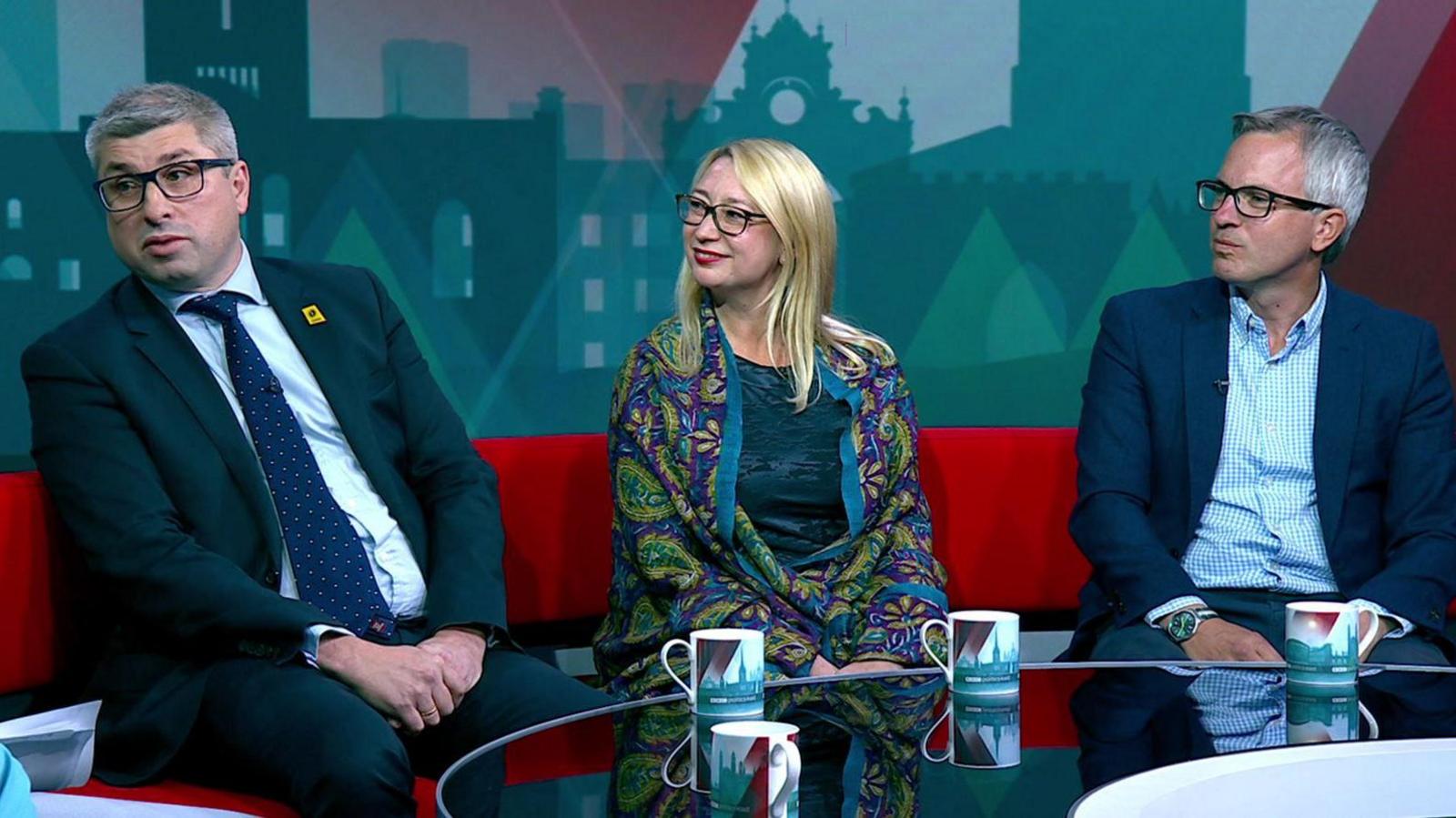
Mark Arnull (Reform UK leader of West Northants Council), Jess Asato (Labour MP for Lowestoft) and James Wild (Conservative MP for North West Norfolk) in the BBC Politics East studio discussed gaming centres
Councils have little control when it comes to licensing venues because of the 2005 Gambling Act.
It requires them to approve gambling licences where the minimum criteria is met, regardless of local community opposition.
King's Lynn and West Norfolk Borough Council has joined other local authorities in calling for stronger powers when determining such licences.
Earlier this month, the Prime Minister Sir Keir Starmer said the government was planning to introduce "cumulative impact assessments, like those already in place for alcohol licensing".
"We will give councils stronger powers over the location and numbers of gambling outlets to help create safe, thriving high streets," he told the House of Commons.
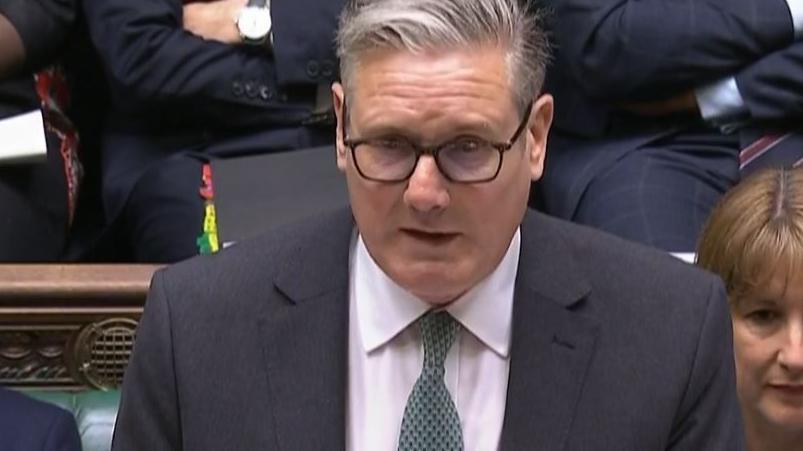
Prime Minister Sir Keir Starmer is backing more regulation over gambling centres
Bacta president Joseph Cullis denied that AGC operators "deliberately target disadvantaged areas" and said they "tend to open on high streets where there is already footfall".
"They are among the safest places to gamble, with experienced staff on hand to identify problems and provide support to customers.
"Our members operate within one of the most tightly regulated licensing regimes in the world," he added.
"'Aim to permit', external does not mean automatic approval – it means councils must assess applications fairly against the licensing objectives in an open, transparent and consultative way, ensuring all sides can be heard."
Jess Asato MP (Labour, Lowestoft) welcomed the government's plan to look at the effect of gambling venues.
"I don't want to see these gambling places proliferating on my high street," she said.
James Wild MP (Conservative, North West Norfolk) said: "I want to see local authorities given powers to look at the cumulative impact. We put it in our white paper on gambling before the election."
The Reform UK West Northamptonshire Council leader Mark Arnull said councils needed more powers.
"We have limited powers under the planning law as to where we can restrict the number of these [gaming centres] coming in," he said.
"It defies logic that you fund organisations to help gambling addiction but can't stop the core problem [too many gaming venues]."
Get in touch
Do you have a story suggestion for Norfolk?
BBC Politics East will be broadcast on Sunday 14 September at 10:00 GMT on BBC One in the East of England, and will be available after broadcast on BBC iPlayer.
Follow Norfolk news on BBC Sounds, Facebook, external, Instagram, external and X, external.
Related topics
- Published28 August
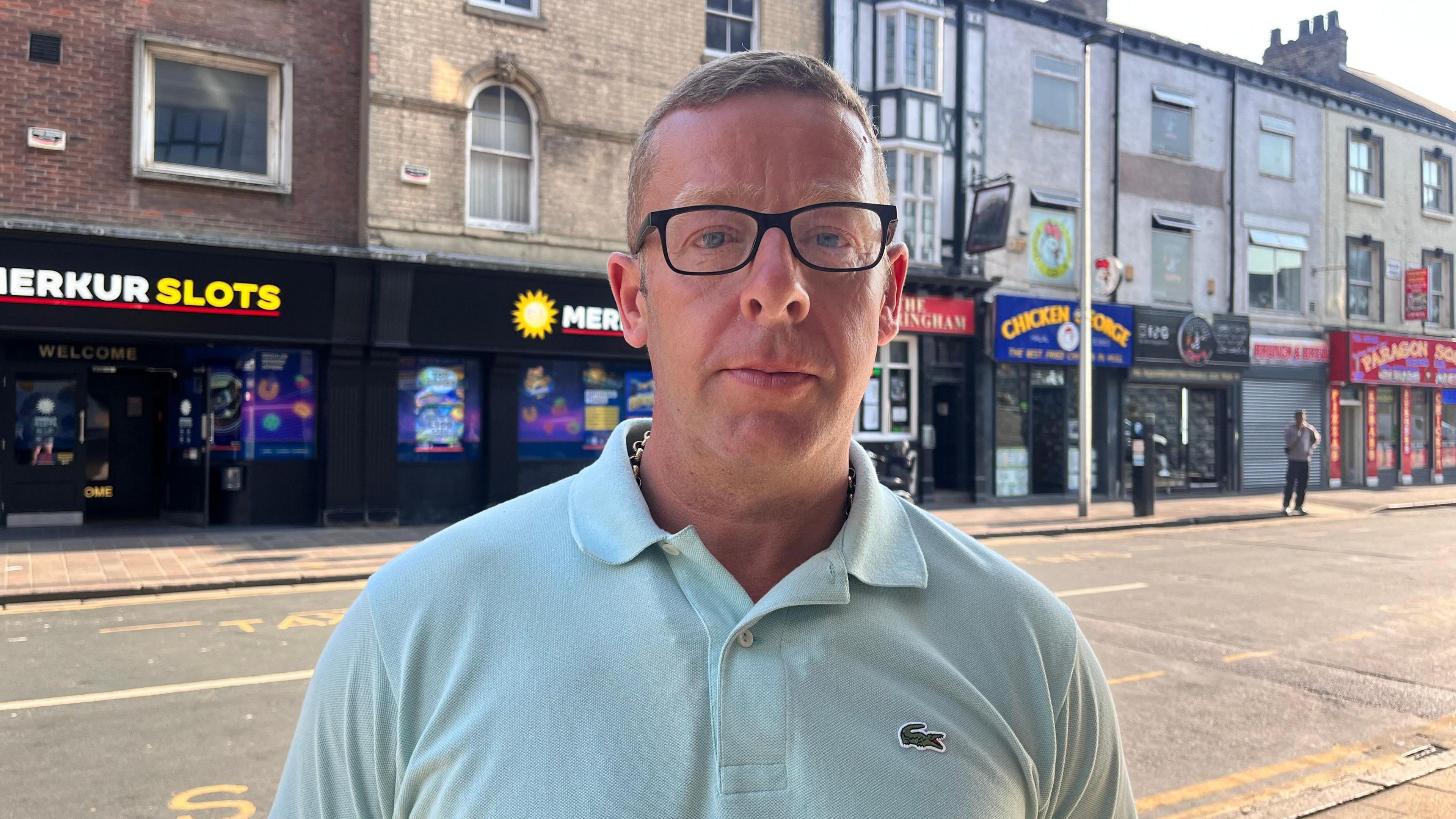
- Published27 July
